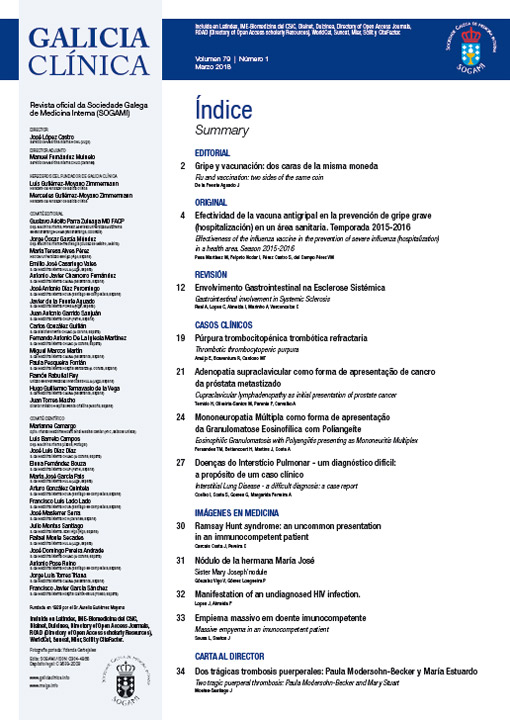Resumen
INTRODUCTION: Ramsay-Hunt syndrome is a reactivation of varicella virus at geniculate ganglion of the facial nerve in patients with documented infection. It is characterized by the presence of cutaneous facial lesions associated with peripheral facial paralysis and vestibular-auricular signs. It has a good prognosis when combined with antiretroviral therapy. CASE DESCRIPTION: The authors present the case of an 77-year-old male patient with a history of childhood varicella infection who was observed in an emergency department due to inflammatory signs of the right auricule and hemiface associated with otalgia, otorrhea, and homolateral erythematous-vesicular skin rash, with two days of evolution and that conditioned facial asymmetry. He was diagnosed with Ramsay-Hunt syndrome, having started treatment with corticoid, gabapentin and acyclovir. The patient had full recovery of neurological and dermatological alterations after a few days. CONCLUSION: Despite frequent reactivation of herpes zoster virus, this clinical case represents an uncommon form of presentation, in an immunocompetent patient.Galicia Clínica by Sociedad Gallega de Medicina Interna is licensed under a Creative Commons Reconocimiento-NoComercial-SinObraDerivada 4.0 Internacional License.
Created from galiciaclinica.info.


